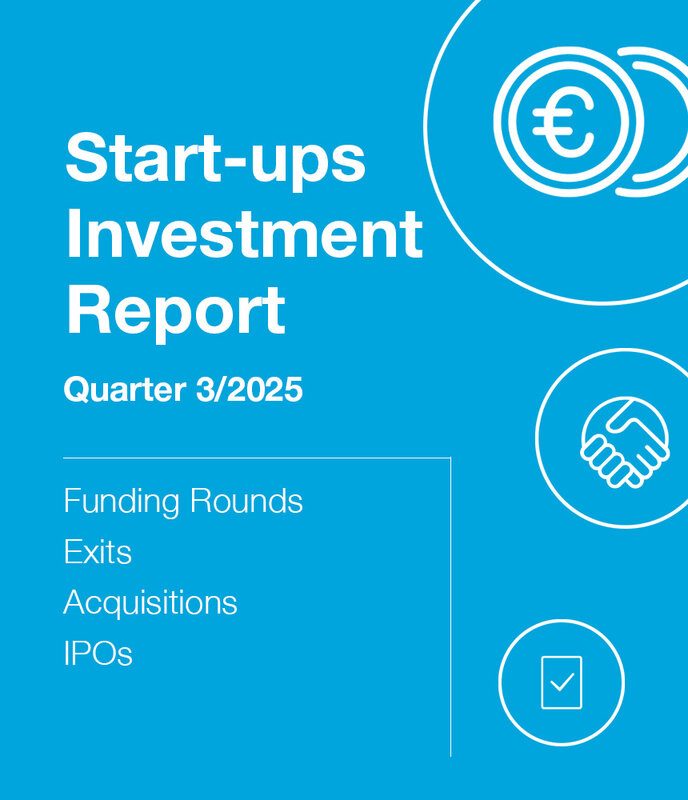Funding rounds, exits, acquisitions, and IPOs of WHU start-ups in Q3 2025
Could the European Union have its own decentralized Silicon Valley? With the comprehensive EU-wide corporate structure EU-INC, it would certainly get one step closer.
Proposed by the European entrepreneurial and venture capitalist community, the EU-INC initiative has the goal of introducing a unified, pan-European legal structure for start-ups. Its introduction would shield start-ups from the fragmentation that can occur as a result of the various domestic policies already active within the union. Founding a company, as well as securing investment and managing administrative work, would be starkly simplified, and documents and processes within the EU unified. It’s a project that intends to act as a strong long-term counterweight to the start-up ecosystem in the United States.
“We have fantastic start-ups in Europe. But all too often, they look to the United States when they want to continue growing. And that is due in no small part to the many obstacles that start-ups in the EU have to contend with. That’s where this initiative comes in. To help people establish companies that can strengthen and highlight Europe’s role in this important economic branch,” says Maximilian Eckel, Director of the WHU Entrepreneurship Center. “Start-ups are important for our economy: with their innovations, they can often become alternatives to American companies and tackle concrete issues in local sectors. Many members of our WHU community support the EU-INC initiative.”
Although Ursula von der Leyen, President of the European Commission, and other EU representatives have shown their support for the initiative, there are still significant political and legal challenges before it can be put “on the books.” In order to introduce the EU-INC structure, there must be an EU-wide legislative process, the outcome of which must be that all member states vote unanimously in its favor (or that none veto the proposal). Additionally, tax systems would continue to be regulated on a national basis, in spite of EU-INC’s unified structure. Each country’s individual corporate structure, for example Germany’s “GmbH” model, could be at a disadvantage with the proposal. And there are questions concerning where legal disputes would be resolved and who would be responsible for observing the businesses’ compliance with the new regulations. Clearly, there is much to address before a common EU structure for start-ups can be introduced—“but it remains an important topic, and we’re excited to see that these first few steps are being taken in the right direction,” says Eckel.
Take a look below to see how start-ups founded by WHU’s entrepreneurs fared (even without this new proposal) between July and September 2025.
July
- Supplied, a legal tech start-up co-founded by WHU alum Johann Rozario (ExecEd 2013), secured €1.6M in a seed funding round. The company’s goal is to make legal services more efficient and more accessible digitally.
- Berlin-based real estate company McMakler successfully concluded a late funding round. Co-founded by Felix Jahn (Diplom 2006), the company is considered one of Germany’s leading online property platforms.
- NG.CASH, a Brazilian fin-tech company, won over investors during a series B funding round and netted €24M. Co-founder Luis Felipe Carvalho (MSc 2004) and his team are behind the digital bank for Gen Z in Latin America.
- Friendsurance, co-founded by Tim Kunde (Diplom 2004), is a Berlin-based insurance innovator that recently concluded an additional late-stage funding round. The company is a pioneer in peer-to-peer insurance services.
August
- There were no major updates in August.
September
- American biotech firm Onconetix, founded by alum Joseph Hernandez, secured €11.7M in a private placement funding round. The company, one of the most ambitious firms in oncology today, is developing innovative cancer treatments and diagnostics solutions.
- Co-founded by Julius Muth (MSc 2020), revel8 secured €7M in a seed funding round. The Berlin-based start-up uses artificial intelligence to protect companies through realistic, custom-made social engineering attack simulations, i.e., simulations of the procurement of confidential data through fraudulent means.
- Based in Potsdam, K2 Mobility, founded by Markus Kröger (Diplom 2001), focuses on providing software solutions for energy management and cargo load planning. With its SaaS platform, the start-up contributes to the electrification of logistics fleets and helps promote sustainable mobility while doing so. The company recently concluded a successful early venture capital funding round.
- Conduct, co-founded by Jan Philipp Haas (BSc 2015) and based in London, is developing AI-supported corporate software solutions to modernize obsolete IT systems. The start-up received €10.9M in a seed funding round for the platform’s further development.
- Based in Bangkok, Constant Energy, founded by WHU alum Franck Constant, successfully secured €8.6M in a funding round. The firm operates and invests in solar panels in Southeast Asia and supports other companies with the sustainable provision of electricity.
- Lithuanian start-up MELP was founded by Robertas Šaltis (EMBA 2008) and recently secured €1.25M in a seed funding round. With its communication platform, MELP promotes internal collaboration and strengthens employee retention at today’s companies.
- Pactos, a Munich-based HR-tech company founded by WHU alumni Antonio Zill (BSc 2019; MSc 2021) and Philipp Eckert (MSc 2022), secured €2.7M in a seed funding round. The company’s AI-supported platform is revolutionizing the management of external consultants and freelancers.
- Dutch health-tech company Easee, co-founded by Yves Prevoo (EMBA 2016) has been acquired by Visibily. The company provides the world’s first CE-certified online vision test and makes optometrist services accessible online.
- Switzerland-based betterview, co-founded by WHU alum Michael Wendt (BSc 2011), has been acquired by EuroEyes. The company can count itself among the leading providers for laser and refractive surgery.
- encentive, co-founded by Nicolàs Juhl (BSc 2011), received €6.3M in a seed funding round. The company’s platform helps industry operations reduce their energy costs and CO2 emissions through smart consumption management.

